Your horse will become more fatigued if worked hard in hot conditions, think about exercising early in the morning or later in the evening, avoid the mid-day heat. It could lead to dehydration and heat stroke, you would need to call a veterinarian straight away if this happens and follow their instructions.
- Home
- What We Do
- Equine Advice
- Summer Management
Summer Management
Summer days are changing. Climate change is affecting our weather and as a result we are experiencing warmer temperatures for longer periods. This means that caring for an equine during the summer may not be as straight forward as it used to be. Here are some tips which may help you adjust.
Water and hydration
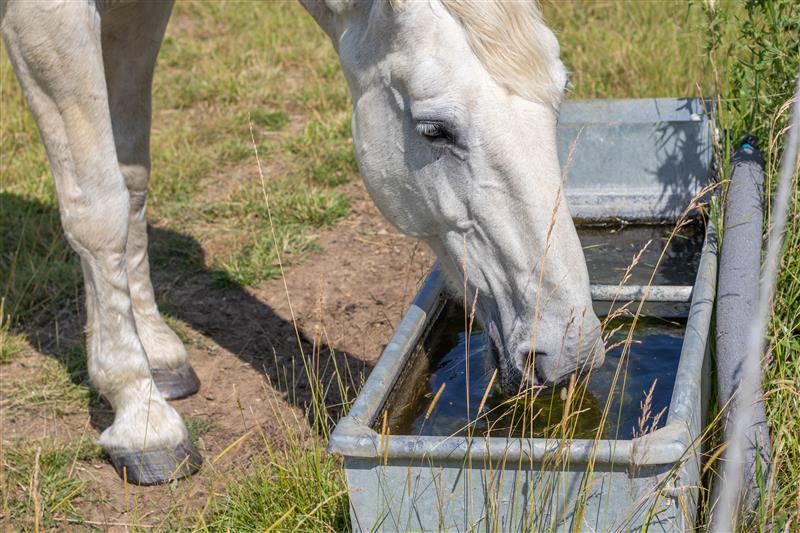
A constant supply of clean, fresh water is essential to help prevent dehydration. A 500kg horse can drink between 20-30 litres (approximately 3-4 buckets) of water per day and this can increase to up to 50-60 litres (approximately 6-7 buckets) per day in hot weather. Changing the water more often on high temperature days keeps it fresh and keeps your equine hydrated.
Water plays a key role in your horse’s digestive system, where it is continually secreted into and reabsorbed from the gut. Changes in hydration, by not having enough water, can cause disturbances to the digestive process and how food passes along the gut. This increases the risk of impaction colic. which occurs when a firm ball of feed material blocks the intestine.
You can also soak hay to add moisture, but be mindful that soaking hay for any period of time will affect the nutritional value.
Shelter and protection
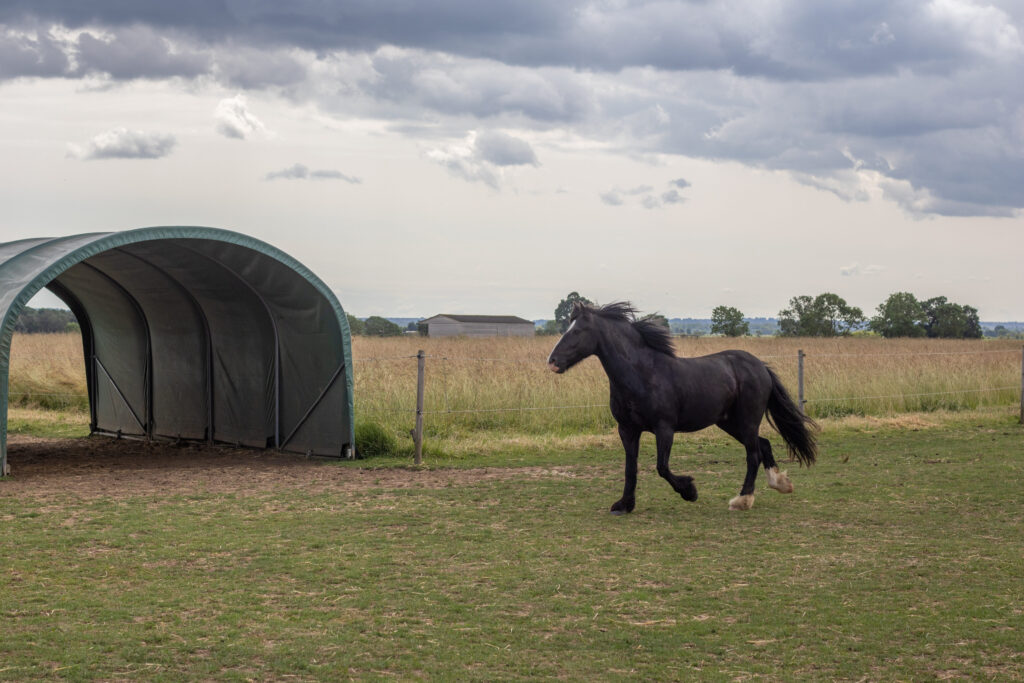
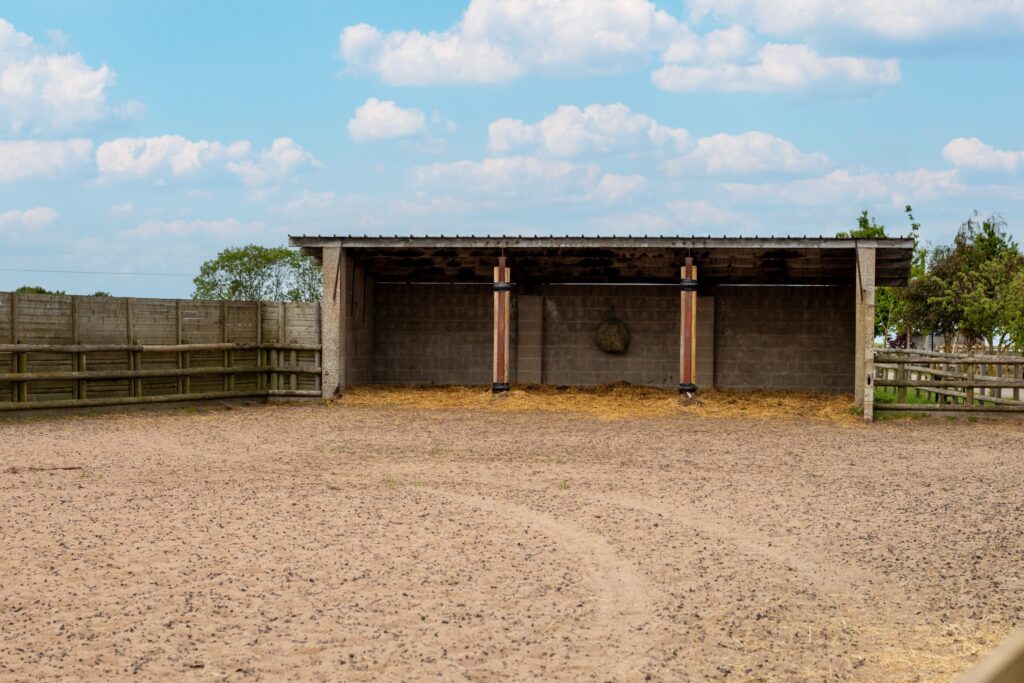
Shelter or shade is preferable on warm days. If your horse is turned out, a field shelter provides the best protection from the sun. The shade provided by trees and hedges may provide a good substitute, but remember the shade will move with the sun, so there may be certain times of the day when it isn’t accessible to your horse. If natural shelter is used make yourself aware of poisonous trees and hedges which are unsafe for use around horses.
If you have the facilities, stabling horses through the hottest parts of the day, providing their stable remains cool, is an option to consider. Ensure the stabling has good ventilation and make management changes gradually to reduce stress and potential colic.
Use sun creams, especially on grey horses and pink skin. Pay particular attention to the nose, a nose net may help keep the sun off. Their skin will burn just like ours.
Insects
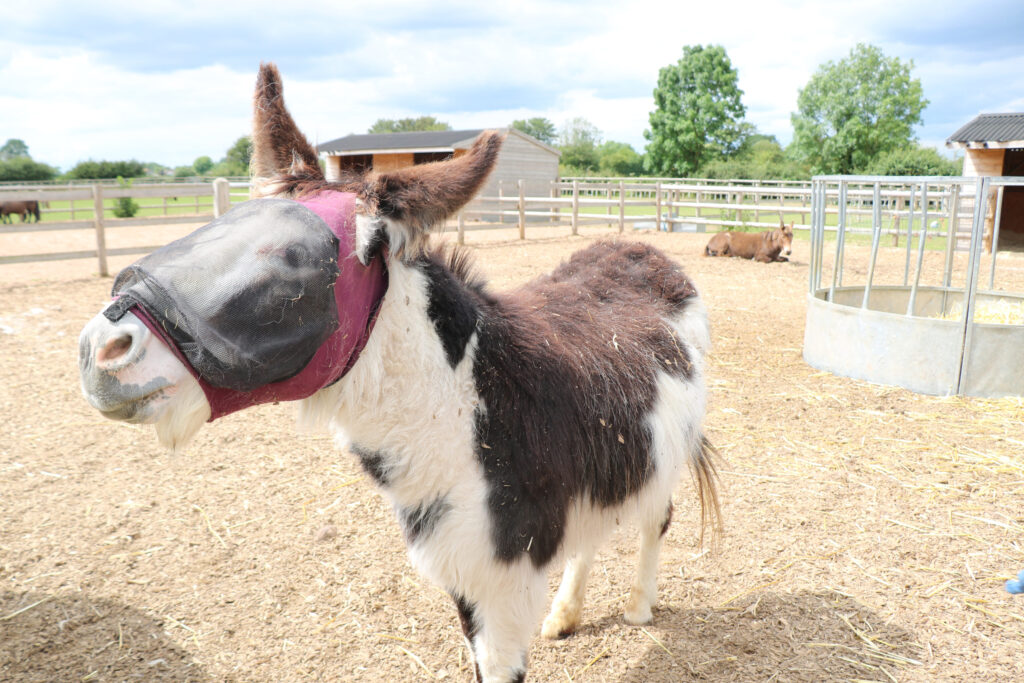
Warm weather and insects come hand in hand. Flies can be very annoying to equines, they gather around the eyes and can make them sore and swollen. Some horses will react to fly bites, lumps will appear on their body. To help reduce your horse’s exposure:
- Keep your horse in during the day and out at night
- Use thin fly sheets and masks
- Apply a fly repellent spray – always follow the manufacturers’ instructions and do not use on inflamed or broken skin
- Remove droppings frequently from the paddock and stable to deter flies and keep grazing well maintained
- Position the muck heap away from where the horse is kept where possible
Food
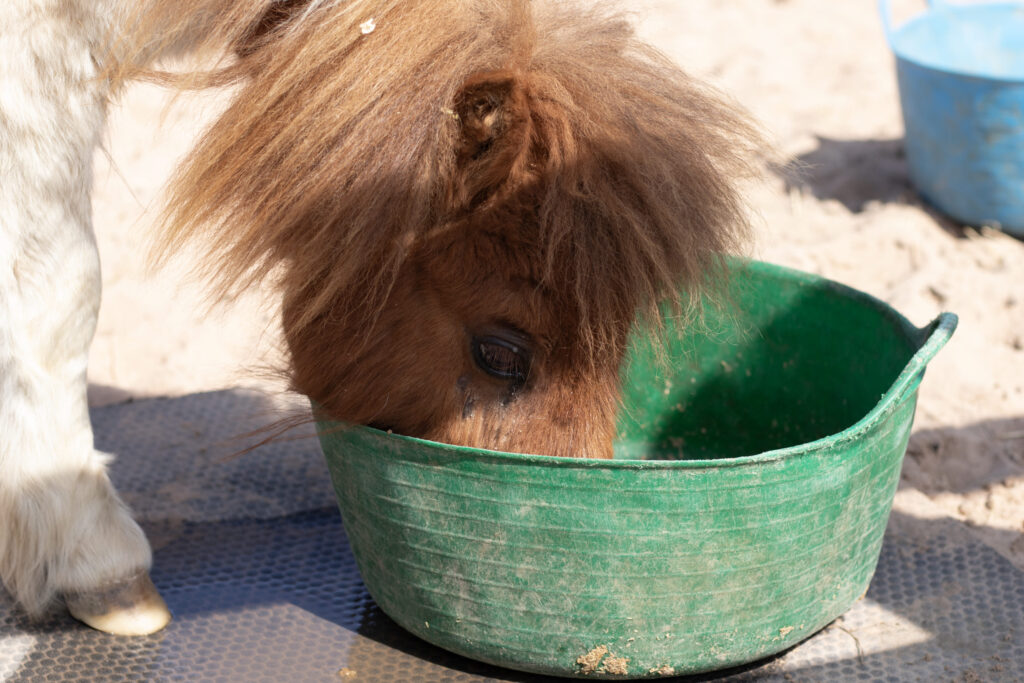
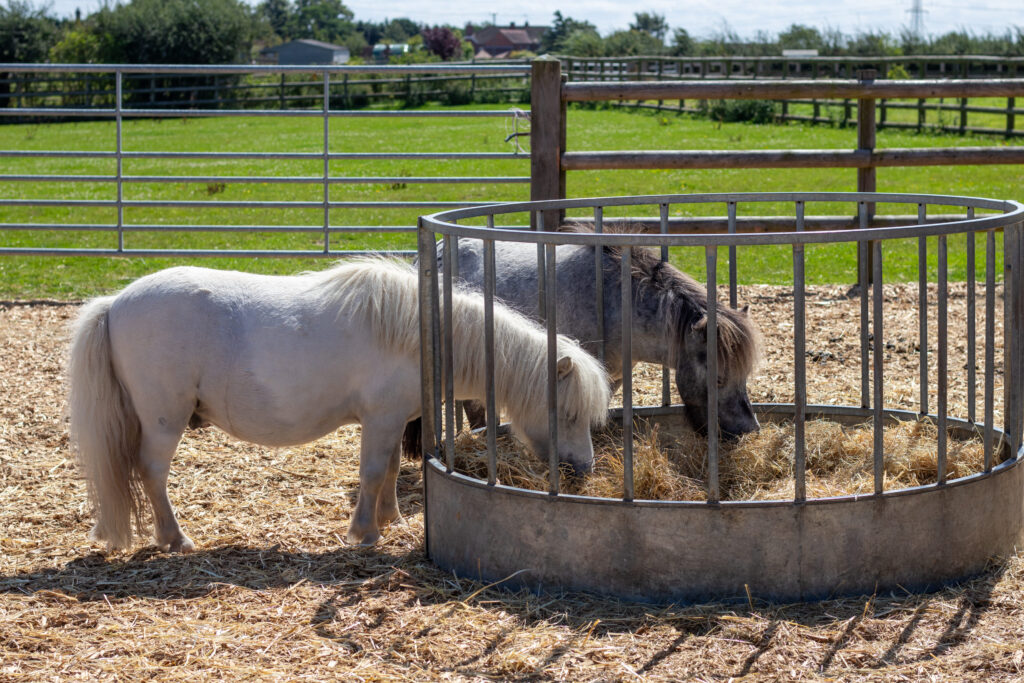
The hot weather may affect the grass quality, as the sun can dry out the grass, effectively turning your grazing into uncut hay. This grass will still provide enough calories for your horse; however, the nutritional value may decrease. A low-calorie balancer or vitamin and mineral supplement may be required to ensure your horse is getting exactly what they need. Remember to keep weighing and Body Condition Scoring to check your horse is not gaining or losing weight.
Be extra careful if you own an overweight horse or a horse with an underlying condition such as Equine Metabolic Syndrome or Cushing’s Disease and rain is forecast. The combination of rain and sun will cause the grass to grow quickly and if you let your horse eat too much, this could increase the chances of laminitis. Be prepared to limit grazing if rain is due and introduce your horse slowly back to what will be a very different forage compared to what they have been eating before the rain.
If your horse is kept on restricted grazing, be aware they could consume more soil or sand, increasing the risk of colic. You may need to feed additional forage to help prevent this. Introduce any new forage gradually over a minimum of 10-14 days. Provide enrichment to prevent boredom, offer hay in small-holed nets, hay balls, licks and toys to play with.
Excercise
Remember we are here at Bransby Horses to support you with the health and welfare of your horse, if you require further information on any of the above or you would like to discuss your management plan please call 01427 787369 or email welfare@bransbyhorses.co.uk.
